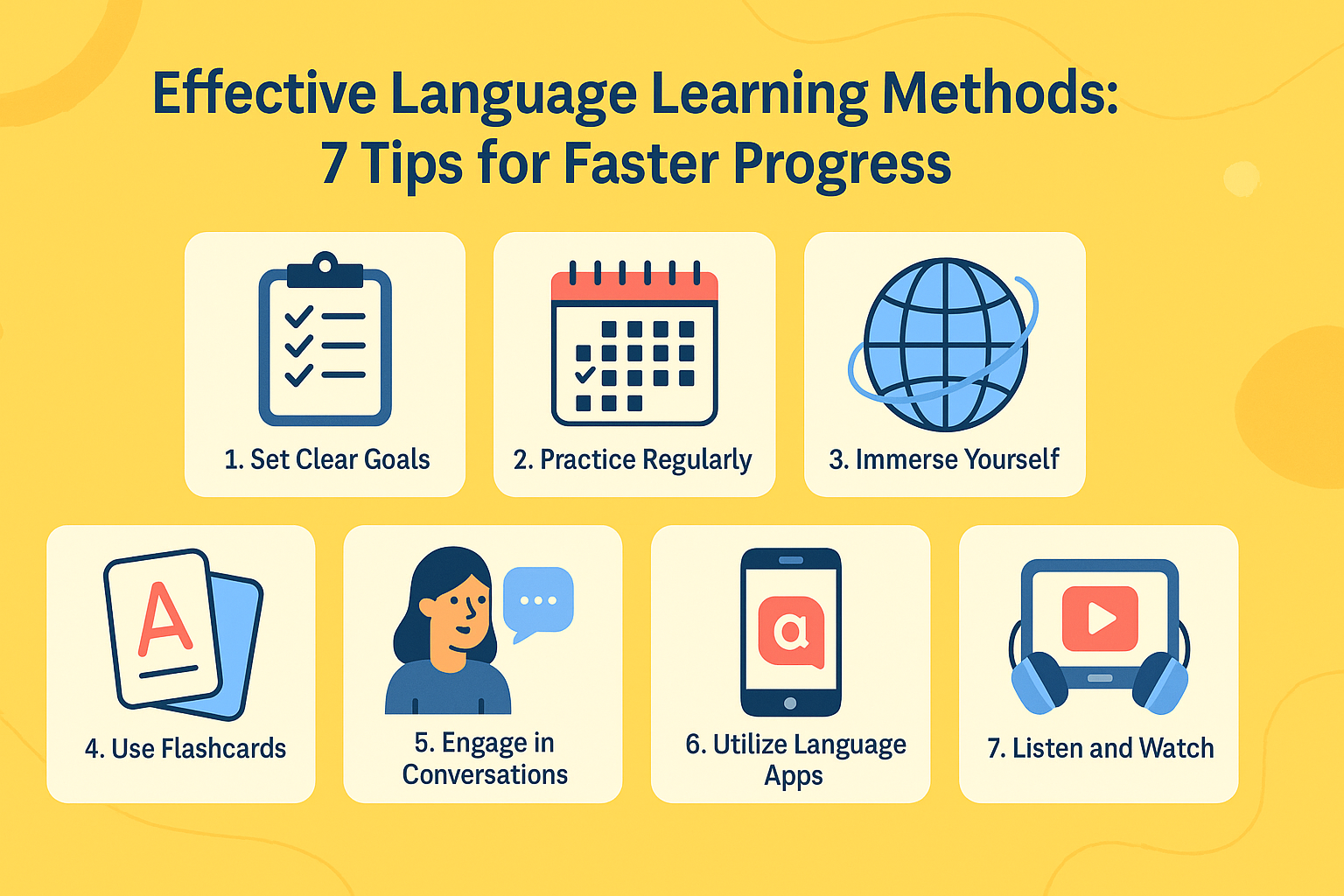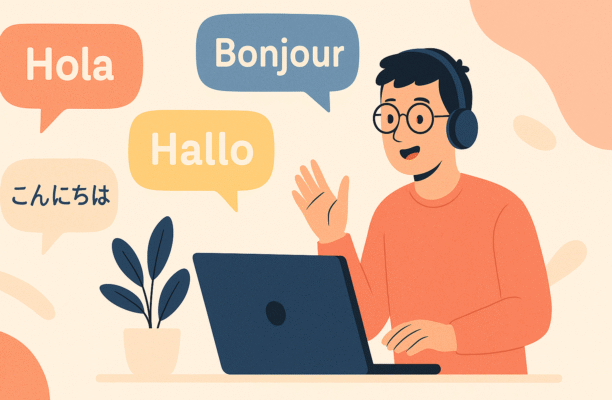Learning a new language is an exciting and rewarding journey, but it can also feel overwhelming—especially if you’re short on time or motivation. Fortunately, there are practical methods you can follow to speed up your learning and make real progress, no matter your age or experience level.
Here are the most effective strategies to help you learn a language faster and retain what you learn:
1. Set Clear, Achievable Goals
Before diving in, define your purpose and break your learning into manageable milestones. For example:
- “Hold a basic conversation in three months”
- “Learn 30 new words each week”
- “Pass the A2 language level test in six months”
Having clear goals keeps you focused, motivated, and able to track your progress.
2. Practice Daily, Even if It’s Just 10 Minutes
Consistency beats cramming. Language learning benefits from daily exposure, even if it’s brief. Consider:
- Listening to a podcast on your commute
- Practicing vocabulary with flashcards
- Reviewing a lesson before bed
Small, daily habits are easier to maintain and more effective long-term.
3. Immerse Yourself in the Language
The more your brain is surrounded by the language, the faster it adapts. Create a mini-immersion environment by:
- Changing your phone or computer language settings
- Watching shows, movies, or YouTube videos in the target language
- Listening to music or audiobooks
- Reading simple books, news articles, or subtitles
This passive exposure reinforces vocabulary and helps you think in the new language.
4. Use Spaced Repetition Systems (SRS)
Memory works best when it’s challenged at just the right time. Apps like Anki, Memrise, or Quizlet use spaced repetition to help you remember vocabulary more efficiently by reviewing words just before you forget them.
This technique strengthens long-term retention and helps avoid information overload.
5. Practice Speaking From Day One
Many learners delay speaking out of fear of making mistakes. Don’t wait.
- Practice with online tutors or conversation partners
- Repeat phrases aloud while watching videos
- Talk to yourself in the mirror
Speaking early helps build confidence and muscle memory for pronunciation and sentence structure.
6. Learn in Context, Not Isolation
Instead of memorizing vocabulary lists, learn words in context:
- Use them in full sentences
- Associate them with images, stories, or real-life examples
- Study dialogues, scenarios, and common phrases
Context helps your brain understand how and when to use new language naturally.
7. Use Online Tutors for Personalized Feedback
Working with a language tutor accelerates your progress by giving you:
- Customized lessons based on your goals and level
- Real-time corrections and encouragement
- Exposure to authentic pronunciation and usage
Platforms like ours make it easy to find experienced tutors who fit your schedule and budget.
8. Record Yourself and Listen Back
Recording yourself helps you:
- Hear pronunciation errors
- Track progress over time
- Build speaking confidence
This self-awareness leads to faster improvement and better speaking skills.
9. Make It Fun and Relevant
You’re more likely to stick with language learning if it’s enjoyable. Personalize your learning:
- Watch content you enjoy (comedy, documentaries, drama)
- Talk about topics that interest you (sports, fashion, travel)
- Use language games and challenges
When learning feels like play, your brain stays more engaged.
10. Be Patient and Celebrate Small Wins
Language learning is a marathon, not a sprint. Don’t compare yourself to others. Celebrate:
- Your first full conversation
- Understanding a native speaker without subtitles
- Using a new grammar rule correctly
Progress may feel slow, but consistency will lead to fluency.
Final Thoughts
You don’t need to move abroad or study for hours a day to learn a new language. With the right mindset and methods, you can make significant progress quickly. Use these proven strategies to stay motivated, build your skills, and enjoy the process.
Remember, the best time to start is now. With the help of online tutors and immersive tools, your path to fluency is closer than you think!




Leave your comment